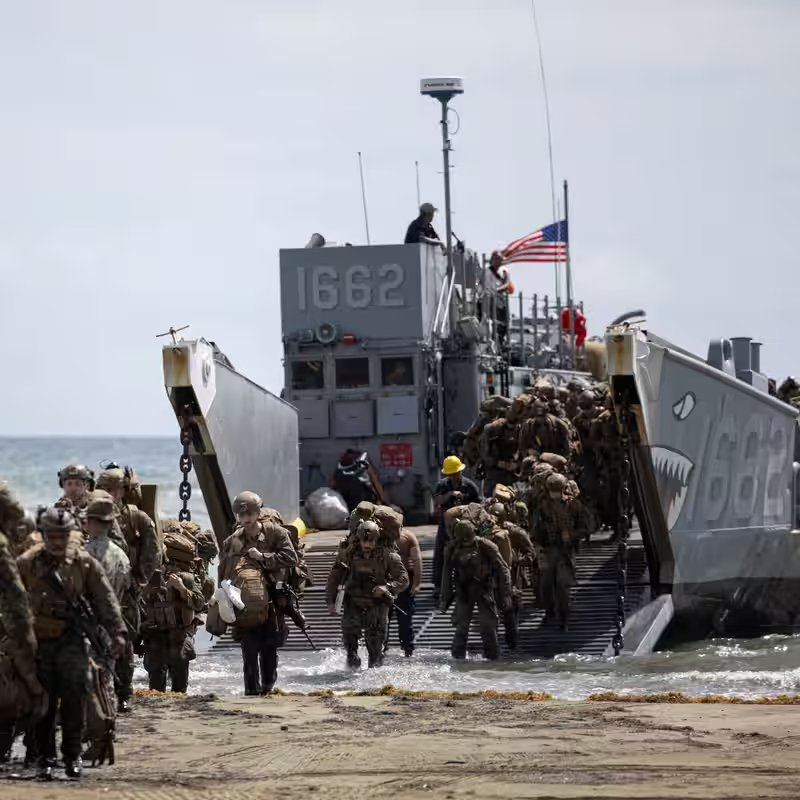Table of Contents
- Escalating Conflict in the Caribbean
- Timeline of U.S. Military Strikes
- Why Trump Is Taking Military Action
- Venezuela’s Fiery Response
- Are the Attacks Legal?
- Does Trump Need Congress’s Approval?
- Sources
Escalating Conflict in the Caribbean
In a dramatic escalation of U.S. foreign policy, the Trump administration has launched a series of military strikes against boats in the Caribbean Sea—allegedly targeting drug traffickers linked to Venezuela’s authoritarian leader, Nicolás Maduro. The move has ignited diplomatic tensions across Latin America and raised serious legal and ethical questions.
According to official statements, these operations began in early September 2025 and have so far resulted in seven confirmed strikes, killing 32 individuals. The White House insists all actions occurred in international waters and targeted members of criminal organizations labeled as “terrorists” by the U.S. government.
Timeline of U.S. Military Strikes
| Date | Casualties | Details |
|---|---|---|
| Sept. 2 | 11 killed | First strike; Trump claimed victims were from Tren de Aragua gang. |
| Sept. 15 | 3 killed | One identified as Colombian fisherman; Colombia’s president called it “murder.” |
| Sept. 19 | 3 killed | Dominican Republic recovered cocaine from wreckage. |
| Oct. 3 | 4 killed | All reportedly Colombian citizens. |
| Oct. 14 | 6 killed | Includes citizens from Trinidad and Tobago. |
| Oct. 16 | 2 killed | Semi-submersible vessel targeted; 2 survivors repatriated. |
| Oct. 17 | 3 killed | Linked to Colombia’s ELN Marxist insurgents. |
Why Trump Is Taking Military Action
The Trump administration frames these strikes as acts of national self-defense, citing America’s ongoing overdose crisis. However, experts note that the current surge in fatal overdoses is primarily driven by fentanyl from Mexico—not cocaine from South America.
Despite this disconnect, the White House has deployed significant naval assets to the region. Key figures like Secretary of State Marco Rubio, National Security Adviser Rubio (dual-hatted), and CIA Director John Ratcliffe are reportedly pushing for broader regime-change operations against Maduro, whom they label a “drug cartel leader.”
Venezuela’s Fiery Response
President Nicolás Maduro has condemned the strikes as “heinous crimes” against civilians. He argues that if the U.S. suspected drug trafficking, it should have pursued arrests—not lethal force.
In mid-October, Venezuela announced a nationwide military mobilization and began training civilians for potential defensive combat, signaling readiness for a possible U.S. invasion.
Are the Attacks Legal?
International law experts widely dispute the Trump administration’s claim that drug traffickers can be treated as wartime combatants. Traditionally, maritime drug interdiction falls under law enforcement—not military engagement.
The White House has cited “self-defense” in congressional notifications but has refused to release its full legal rationale. Critics argue this blurs the line between crime and war, potentially setting a dangerous precedent.
Does Trump Need Congress’s Approval?
Congress has not authorized military action against drug cartels. While past Justice Department opinions allow limited presidential strikes without approval, sustained campaigns typically require legislative backing under the War Powers Resolution.
With operations now stretching over six weeks and counting, pressure is mounting for formal congressional oversight—especially as civilian casualties and regional backlash grow.
Sources
The New York Times: U.S. Attacks More Boats as Tensions With Venezuela Rise




